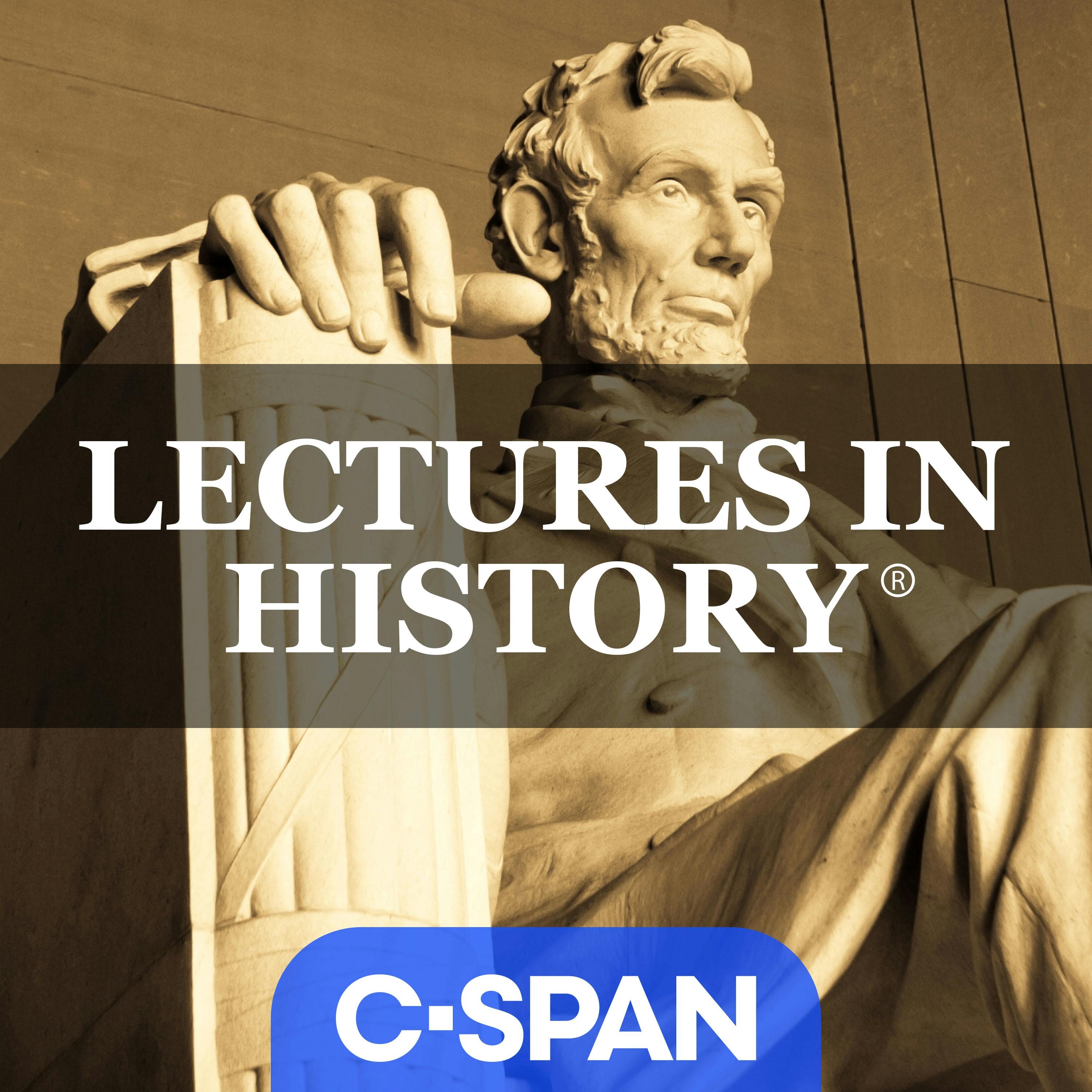

Lectures in History
C-SPAN
Go back to school with the country's top professors lecturing on a variety of topics in American history. New episodes posted every Saturday evening. From C-SPAN, the network that brings you "After Words" and "C-SPAN's The Weekly" podcasts.
Episodes
Mentioned books

Dec 7, 2025 • 50min
How FDR Built a 12-Million-Strong Military: Robert Brigham on America’s WWII Mobilization
Robert Brigham, a Vassar College professor and historian, dives into his search for his biological father, a Marine in Vietnam. He shares gripping details about photographer Bruce Atwell during the Tet Offensive, illustrating the chaotic urban fighting in Hue. Brigham discusses Atwell's harrowing upbringing, his iconic war photography, and the emotional journey of discovering Atwell's secret son, Kevin. Their poignant reunion in Vietnam proves a powerful exploration of legacy, memory, and the impact of war on family ties.

Nov 30, 2025 • 1h 4min
FEEDDROP: Chef José Andrés on Food, Humanity, and Global Relief Efforts
Chef José Andrés, a renowned humanitarian and founder of World Central Kitchen, shares his culinary journey and global relief efforts with David M. Rubenstein. He discusses the power of food as a tool for community change, recounting experiences from Hurricane Katrina and Haiti's earthquake that inspired his work. José emphasizes his creative approach to cooking, his love for cooking at home, and how he balances running restaurants with humanitarian missions. He also dreams of cooking in space, bridging his passion for food with innovative ideas.

Nov 23, 2025 • 1h 8min
Geri Spieler on Housewife Assassin: The True Story Behind a Suburban Double Life
Geri Spieler, an author and journalist, delves into the life of Sara Jane Moore, who attempted to assassinate President Ford in 1975. Geri shares her firsthand experiences meeting Moore in prison and details the shocking demeanor she exhibited. The conversation explores Moore's radical connections, motivations behind her actions, and her complex personal life, including multiple marriages. Geri also reveals FBI insights suggesting Moore acted as a double agent, shedding light on the tangled web of radical movements and agency failures surrounding this historical moment.

Nov 16, 2025 • 1h 16min
The 1967 Six-Day War and America’s Role in the Arab-Israeli Peace Process
Trinity College Professor James Stocker, an expert in modern Middle East history, delves into the complexities of U.S. involvement in Arab-Israeli diplomacy. He explores the escalating tensions leading to the 1967 Six-Day War and how American interests shifted during this period. Stocker discusses President Johnson's principles and the ambiguities of UN Resolution 242, as well as the Nixon administration's strategies. He highlights the impacts of regional conflicts and the changing dynamics of Palestinian militancy, all of which shape today's ongoing negotiations.

Nov 8, 2025 • 1h 2min
FEED DROP: ABC David Grann on Killers of the Flower Moon and America’s Hidden History
David Grann, a bestselling nonfiction author known for his investigative storytelling, joins David M. Rubenstein to delve into his acclaimed works. Grann explores the tragic history of the Osage murders in 'Killers of the Flower Moon,' revealing systemic exploitation and the early FBI's shocking findings. He also shares insights from 'The Wager,' detailing a gripping shipwreck saga and its themes of truth versus myth. With a fascinating discussion on his writing process, Grann emphasizes the importance of community engagement and authentic narratives.

Nov 1, 2025 • 1h 21min
The Mexican-American War: Causes, Consequences, and Legacy
Aaron O'Connell, a history professor at the University of Texas, delves into the Mexican-American War's intricate dynamics. He explores how geopolitical shifts, domestic pressures, and partisan politics stoked conflicts. O'Connell examines tactical innovations like flying artillery and the impact of military leadership choices. He also discusses the war's devastating consequences, from territorial gains to the challenging realities faced by newly incorporated Mexican citizens, all while reflecting on the war's legacy and historical memory.

Oct 26, 2025 • 58min
How Constitutional Order Emerged From Crisis
During Reconstruction, a campaign to overthrow the South Carolina government succeeded, triggering a constitutional crisis. University of North Carolina professor and author of "Sedition," Marcus Gadson, analyzed the history behind this event. Learn more about your ad choices. Visit megaphone.fm/adchoices

Oct 19, 2025 • 1h 14min
Gettysburg College’s Timothy Shannon on the Mystery of Roanoke
This week on the Lectures in History podcast:
The mystery of the Roanoke Colony’s disappearance. In 1587, English settlers established a colony on Roanoke Island, off the coast of present-day North Carolina — only to vanish without a trace soon after. Gettysburg College Professor Timothy Shannon explores what we know about the lost colony, the people who lived there, and the theories behind one of early America’s greatest mysteries.
Learn more about your ad choices. Visit megaphone.fm/adchoices

Oct 12, 2025 • 1h 22min
The 1876 Great Sioux War and the Battle of the Little Bighorn
What happened when General Custer and Crazy Horse faced off in battle? Stetson University Professor David Morton chronicles the 1876 Great Sioux War in the South Dakota Black Hills. Stetson University is located in Deland, Florida.
Learn more about your ad choices. Visit megaphone.fm/adchoices

Oct 5, 2025 • 48min
World War II History: Vichy France Collaboration and the U.S.-UK Alliance
United States Army War College history professor Michael Neiberg discusses Vichy France and the Anglo-American relationship during World War II.
Learn more about your ad choices. Visit megaphone.fm/adchoices


